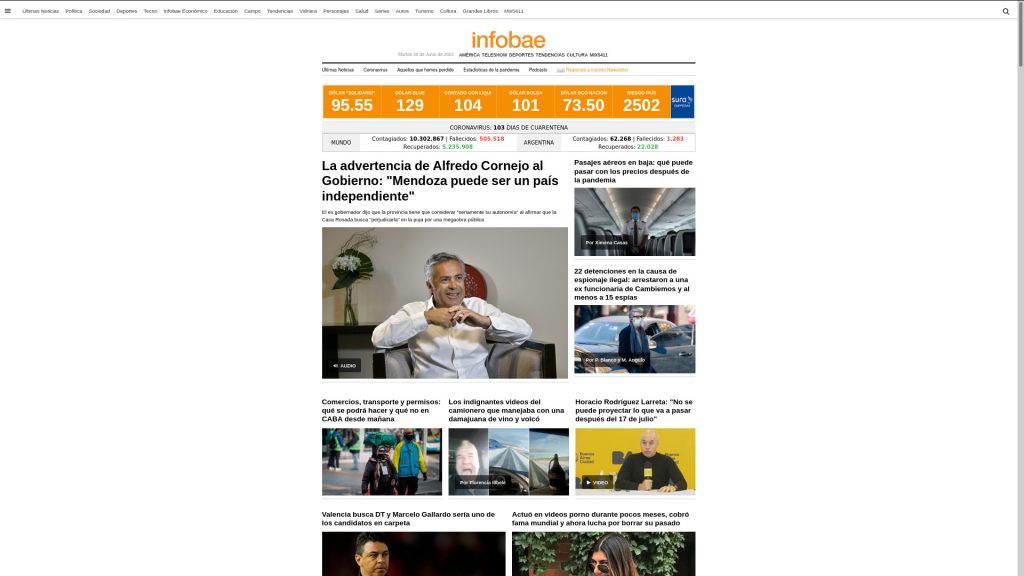Derivas entre el marxismo, el neoliberalismo, y el keynesianismo.
| August 15th, 2021Una reflexión cortita, como nota rápida para no dejarla pasar. Mi sesgo anti-economicista es explícito: tengo una postura muy fuerte contraria a las explicaciones de la sociedad desde la economía. Las economicistas me parecen posturas agotadas, y a esta altura francamente dañinas. De modo que no hay sorpresas en este texto por ese lado. Pero eso no quita que el debate en términos económicos no tenga lugar legítimo en la sociedad, y cabe también la pregunta por cuál es ese lugar.
El ecosistema ideológico economicista contemporáneo se divide, a gran escala, básicamente en tres partes: corrientes marxistas, neoliberalismo, y keynesianismo. Sin dudas hay matices, pero tampoco creo que nadie vaya a negar esas tres corrientes de pensamiento como herramientas principales de reflexión acerca de la realidad económico-social. Y apenas me gustaría anotar tres problemas diferentes que tiene cada corriente, en especial a la hora de la integración: sea con otras corrientes económicas, sea con otras filosofías enteras.
Problemas, a vuelo de pájaro
El mayor problema del marxismo es su enorme profundidad y cuota de verdad. En castellano: “el problema del marxismo es que tiene razón”. Y eso es un problema porque “tiene razón” sólo hasta cierto punto, más allá de lo cuál comienza a tener problemas muy serios.
Es un problema análogo al de la física, cuando aparecieron relatividad y/o cuántica: la mecánica clásica “tiene razón”, excepto cuando ya no la tiene, y es tan profundo lo que eso dice sobre nuestra realidad que sencillamente cuesta entender de qué estamos hablando cuando expresamos nuestros teoremas clásicos. Son casos particulares de cosas mucho, mucho más complicadas (o simplemente diferentes) que aquello interpretado entre los siglos XVII a XIX; y no por eso dejan de ser casos suficientemente generales para explicar sistemas gigantezcos, y de hecho aquellos en particular con los que tenemos contacto en nuestra interacción cotidiana.
Eso es el marxismo para buena parte de las explicaciones sociales contemporáneas: pero sin cuántica ni relatividad que le cuestione nada sobre la sociedad ni la humanidad. Cuando las cosas se le empiezan a escapar de las manos al marxismo en el debate por la comprensión de fenómenos sociales, los problemas se vuelven insoportablemente dificiles de discutir por la compleja carga teórica que el marxismo exige, dejando esas discusiones a círculos inaceptablemente pequeños de personas, y a esos círculos más bien aislados entre sí. Todo esto no es ninguna revelación: cualquiera que se fija puede ver cómo los sesudos debates marxistas pueden ser infinitos, mientras las izquierdas marxistas (con todos sus logros) rara vez logran otra cosa que fragmentación e iluminismo frente a la sociedad general.
El principal problema del neoliberalismo es que está enquistado en las clases altas, e insiste en infectar al resto de las clases sociales (inclusive, e incluso especialmente, las clases bajas). El neoliberalismo es francamente poco serio en términos teóricos cuando se lo compara con el marxismo: ciertamente su poder no está en su carga teórica, que nunca debería de haber pasado de un experimento social más o menos controlado (probablemente la historia, con el paso de los siglos, lo termine leyendo así).
La virulencia (en múltiples sentidos) del neoliberalismo no pasa simplemente porque “ellos tienen los medios” o problemas de ese tipo, que también son totalmente válidos y reales. Sucede que el neoliberalismo además explota aspectos humanos que otras ideologías más bien niegan: concretamente, el valor de la agencia. Entre toda esa porquería hedionda de darwinismo social y cinismo misántropo, el neoliberalismo también te dice “tus ideas valen”, “tu deseo vale”, “tu voluntad vale”. “Sos especial”.
Esas cosas llevadas no tan al extremo derivan en lo que vemos hoy: pelotudes terraplanistas, anticuarentena, cuasi-punk, hablando como si fueran grandes defensoras y defensores cultos del racicinio y de grandes ideas políticas centrales para la humanidad como ser la libertad. Y digo “no tan al extremo” porque me parece que todavía no llegamos a ver el extremo de eso. Pero el punto es que el neoliberalismo te toca fibras sensibles de manera muy directa, y así no necesita dos o tres tomos de El Capital ni 40 tomos de obras completas de Lenin: le alcanza con repetir dos o tres estupideces mil veces. Lógicamente, de esa manera deriva también en un fenómeno inverso al marxismo en cuanto se trata de discutir la sociedad: ahora cualquier bolude dice cualquier boludez, y todo diálogo es un diálogo de sordos; el colmo absoluto de la fragmentación, que al neoliberalismo sólo pareciera quedarle como estrategia homogeneizadora el instalar un odio compartido tan difuso como sea posible.
Cuidado: no por eso hay que ningunear la enorme maquinaria ideológica del neoliberalismo. Apenas me referí al aspecto teórico, donde brillan nombres como Popper o Hayek, pero después está lleno de repetidores más cercanos a la autoayuda como pueden serlo los chicago boys en general. Y aquí es donde me parece que está la punta del ovillo del problema: esta hegemonía intelectual economicista neoliberal es donde se crían les empresaries de nuestras sociedades contemporáneas. Cualquier marxista básico diría que les empresaries no son marxistas por intereses de clase, y en buena medida tendría razón: está claro que les empresaries resistirían buena parte de las ideas marxistas. Pero eso no es tanto problema como el hecho de que insistan en el neoliberalismo, cosa que no queda exactamente explicada en “interés de clase”: porque estamos hablando de millonarios, no de billonarios, y así esa gente cae en la misma trampa que las clases medias y bajas cuando abrazan ideas neoliberales. No es una cuestión de clase, es otra cosa, aunque la clase esté ahí metida.
Y finalmente, el problema del keynesianismo es su urgencia. Los límites del marxismo no es cosa que se me haya ocurrido a mí aisladamente, sino que se vienen discutiendo desde hace como 80 años en todo el mundo. Y la respuesta keynesiana al auge del marxismo y la caida del liberalismo clásico son cosa de mitad del siglo XX: ya estamos bien entrado el XXI. El tema es que frente a las crisis actuales, insiste: “redistribución ya” parece ser la única estrategia pensable, mientras millones de personas viven pobreza, enfermedad, y hambre; no hay tiempo para pensar nada.
Eso es un problema muy serio, porque el keynesiamismo está tan viciado como las otras dos corrientes: ya está probado, ya falló en diferentes aspectos, y ya es hora de que sea debidamente contrastado con la realidad histórica y las verdades de múltiples disciplinas. Lo mismo pido del marxismo, pero me parece más complicado que suceda, por sus cuestiones tecnócratas; y no pido lo mismo del neoliberalismo porque es sencillamente humo, no dura dos rounds en ningún debate con datos. El keynesianismo dá lugar a que las cosas se vayan deshilachando de a poco, para poder entenderlas, y arreglarlas o cambiarlas por otras. Pero ese trabajo es lento para los tiempos actuales, y a las cosas que se están viviendo no se les puede pedir tiempo: necesitamos acción.
La “acción” de la que hablo no es una cuestión de shock económico: esa es la parte que se le escapa al pensamiento economicista. Une keynesiane elemental va a decir algo del estilo “impuesto a les riques, y redistribución urgente”. Pero esa redistribución va a financiar consumo, que estimula la producción, y eso se va a entender como motor de la economía. Pues bien, sucede que el consumo también está en su límite histórico más escandaloso desde que se tengan registros: me refiero al problema ambiental. Ya no es cosa de “las generaciones que siguen”, sino cosa de ahora. Y “el consumo” impacta directamente en ello. Es al menos tan urgente la cuestión climática como la pobreza, porque si no se frenan las tendencias actuales estamos hablando de muertes a niveles francamente bíblicos. A eso no se responde con “producción y consumo”. A eso se responde, de hecho, con una producción varios órdenes de magnitud más regulada (restringida), y a una cultura de consumo absolutamente diferente a la que conocemos: ya no “diferente” en términos reformistas, sino revolucionarios.
¿Qué hacer?
Lo que hay que revisar no es si sos marxista, neoliberal, o keynesiane: hay que revisar hasta qué punto estos problemas son económicos. Algunos pensamientos vagos, también para dejarlos anotados.
• Todas las corrientes ideológicas economicistas contemporáneas comparten algunos aspectos que a esta altura deberían ser discutidos con mucha más responsabilidad: como ser la centralidad del trabajo, del mérito, y del comercio, en la organización de la sociedad. Las definiciones de esas cosas además varían mucho, y divergen en antagonismos irreconciliables. Pero además hacen agua en incontables fenómenos humanos cotidianos, y sin embargo parecen pretender insistir en explicarlos en esos términos, no se entiende bien si con obstinación o desesperación. Eso tiene que terminarse.
• Tenemos que concentrarnos en resolver problemas, no en explicarle a les demás cómo es que están equivocades. El keynesianismo en esto me parece mucho más amigable que los otros dos espacios: tanto para negociar, como para desarrollar herramientas de cohesión técnica y teórica que de lugar a algunos diálogos ya un poco más inter-generacionales e inter-gremiales. No creo que le vaya a ir muy bien en esto, pero definitivamente está mejor parado que los otros dos asnos de escuelas teóricas que se creen frecuentemente la verdad revelada.
• No podemos seguir hablando de “crecimiento”. En criollo: “ya estamos grandes”. Tenemos que concentrarnos en ideas de horizontes de desarrollo para la humanidad en general, porque la vida en el siglo XXI se está mostrando como un cúmulo de angustias mortuorias y nefastas, y las únicas promesas que nos ofrecen las corrientes economicistas son el retorno de cosas que ya estaban siendo severamente cuestionadas décadas atrás. La escases de futuros felices para la humanidad es mucho más conservadurismo pesimista que falta de recursos. Y acá el marxismo brilla: desde sociedad sin clases hasta la exploración expacial o incluso la inmortalidad, el futurismo marxista humilla a los tibios planteos keynesianos de “vas a poder ir de viaje” o “vas a poder comprarte un auto”, al mismo tiempo que en buena medida protege a las sociedades del darwinismo social neoliberal en el “salvate vos”. Hay que volver a instalar los futuros posibles como horizontes de acción política, y esos futuros no pueden seguir siendo una rémora más del relato económico: es relato social, científico, filosófico, humanístico, animalístico, ambiental…
• Es absolutamente fundamental que la sentimentalidad humana pase a contemplarse en toda su dimensión. Nuestras teorías del valor, rectoras de nuestros intercambios sociales, no pueden seguir estando forjadas en base a materialismos que no dan cuenta de nuestro comportamiento en su totalidad. No somos aparatos que solamente trabajamos. No somos agentes de producción. No somos consumidoras y consumidores. Somos mucho más que todas esas cosas, y todo lo que se escapa a eso también tiene que estar contemplado en nuestras teorías del valor. Somos amantes, somos amigues, somos solidaries, somos apasionades, somos conflictives, somos dañines, somos racionales, somos sabies, somos ignorantes… somos muchísimas cosas, que no se reducen a “trabajo”, “produción”, y “consumo”, salvo por groseras sobresimplificaciones. Muchos de esos fenómenos están más regidos por abundancias que por escaseses, otros tienen qué ver con los tiempos de los fenómenos más que por los eventos o sus calidades, otros tienen qué ver con las experiencias subjetivas más que con las organizaciones sociales generales… la economía no es, y nunca va a ser, ni suficiente ni siquiera generalmente adecuada para abarcar esos fenómenos en todas sus dimensiones. Y esto no es un romanticismo hippoide: el neoliberalismo explota esto, y así estamos. El neoliberalismo es mucho más emocional que racional, mucho más concentrado en la percepción y la sentimentalidad que en las condiciones materiales; es mucho más eficaz que el marxismo para llegar a la gente, e incluso que el keynesianismo. Esto debe ser contemplado con seriedad, porque sino las derechas van a seguir haciendo destrozos, mientras las izquierdas van a seguir haciendo pucherito porque “lOS iNteRESes De cLasE!!1!”.
“Qué hacer”… hace poco leía para el doctorado unos textos de Anthony Giddens, donde el tipo básicamente hizo hace algunas décadas el mismo trabajo que me propongo hacer yo ahora: ahondar en la condición humana, para desde más bajo nivel armar otras teorías generales sociales que permitan más integrar disciplinas antes que ponerlas a competir. La primer pregunta es “qué es ser humane”, “cómo funciona el ser humane”. Y es una pregunta implícita que tiene toda teoría que habla sobre la gente, aunque no se hagan cargo y después se hagan les boludes cuando las papas queman.
Y Giddens fue bastante lúcido en plantear algunos aspectos epistemológicos que yo venía sosteniendo hace muchos años como intuiciones. Uno de los problemas centrales, sino ÉL gran problema central de la teoría social, es la agencia. Estructuralistas y marxistas te van a hablar de determinismos cuasi-teleológicos, con lo cuál a la agencia medio que te la metés en el culo: elegís tu gusto de helado o de chicle, pero no elegís nada frente a las grandes tendencias “histórico-sociales-económicas”, o bien “estructurales”. Quienes reaccionan contra eso usualmente también se van al pasto haciendo de cuenta que elegir el gusto de helado es lo mismo que plantarse contra todo eso: la sobrevaloración de la agencia también lleva a cualquier cachivache, como es el caso manifesto del neoliberalismo. Y por supuesto que en la agencia, no cuesta mucho darse cuenta, está el problema del poder en política. Giddens llamó la atención sobre cómo no es ni una cosa ni la otra, y a la agencia hay que prestarle atención de otra manera; ahí en términos políticos pueden empezar a aparecer Foucault y compañía, pero también aparecen Freud y Lacan, aparecen les pragmatistas yanquis, aparecen lingüistas, sociólogues, biólogues, y muches otres más. El punto es que muy rápidamente la economía pierde centralidad cuando une se pone a analizar a la humanidad en detalle, y se convierte en una disciplina más del montón. Yo voy a realizar mis estudios humanos por otro lado, pero mi esperanza es básicamente hacer la misma clase de trabajo que hizo Giddens.
Con todo eso, mi conclusión final es un llamado a realizar tareas que en realidad ya se están realizando, y desde hace rato. Tareas de “heterogeneización” (no sé si existe esa palabra) de las corrientes de pensamiento, y en especial de las de orden político. Tenemos que aprender a realizar ingenierías políticas adecuadas a los problemas actuales, para lo cuál necesitamos componentes de cualquier teoría que nos sirva: lo cuál va a ser contingente, y frecuentemente polémico para cualquier conservadurismo instalado. Hoy necesitamos mucho más horizontes aspiracionales y convincentes que teorías definitivas en conflicto. Y esos horizontes no pueden ser tampoco negadores: no podés seguir midiendo el bienestar de la sociedad con métricas como “cuántos autos se venden” en medio de un planeta donde las metrópolis son foco de infección de pandemias, hay círculos de pobreza alrededor de todas ellas, hay explotación descontrolada de la tierra, y el clima mientras tanto se va al recontra carajo; eso es una absoluta cegera, y quien no se aviva a esta altura merece no menos que un cachetazo.








